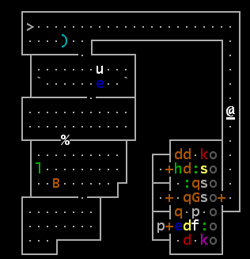
There has been a fair amount of coverage on game development costs expanding beyond control, resulting in an entertainment medium dominated by the major publishing houses with the bankrolls to hire huge teams across several years. We’ve also dealt with, and are way past, the grumbling about Xbox 360 and PS3 games costing an extra $10 brand new over those for their previous iterations. What we haven’t talked about much is how calculus is fighting back against these big publishers, and pulling the optimized profitability of a given game way off toward the vanishing point.
This GameDaily.biz article reports on market analysis from the Screen Digest firm, with the incredibly dry title of "Next Generation Consoles: Games publishing, hardware analysis and forecasts to 2010," suggests that game publishers won’t begin to see a return on investment for their next-gen games until 2008. The report goes on to discuss which console Screen Digest singles out as the probable "winner" of this generation, that being the PlayStation 3. In their words: "Sony’s investment in next generation games content and a strategy to position PS3 at the heart of the broadband enabled, high definition living room will enable it to build the largest global user base by 2010."
More interesting to me than the hardware sales predictions is the laundry list of cost-cutting measures that major publishers have engaged in to keep their development costs low, and to minimize the time elapsed before the money train stops at their station. The techniques noted in the artcle are expected, with things such as multi-platform releases, outsourcing, and sequel-itis, but they ought to catch your fancy for what they say about game projects: scaling down is not in the cards. While there is all this talk of minimizing costs, its in the context of maximizing the coverage of intellectual properties.
It’s a philosophy that, from a business-standpoint, is apparently running into some obstacles, given the particulars of Screen Digest’s report. I’m perched on the fence, watching how many people get inspired by Will Wright’s high-profile development of code-intensive, artist-light procedural gaming; writ smaller, it seems like such development tactics could hit a sweet spot, business-wise, of low investment and high returns, instead of the high investment, higher returns goal the big boys currently aim for.